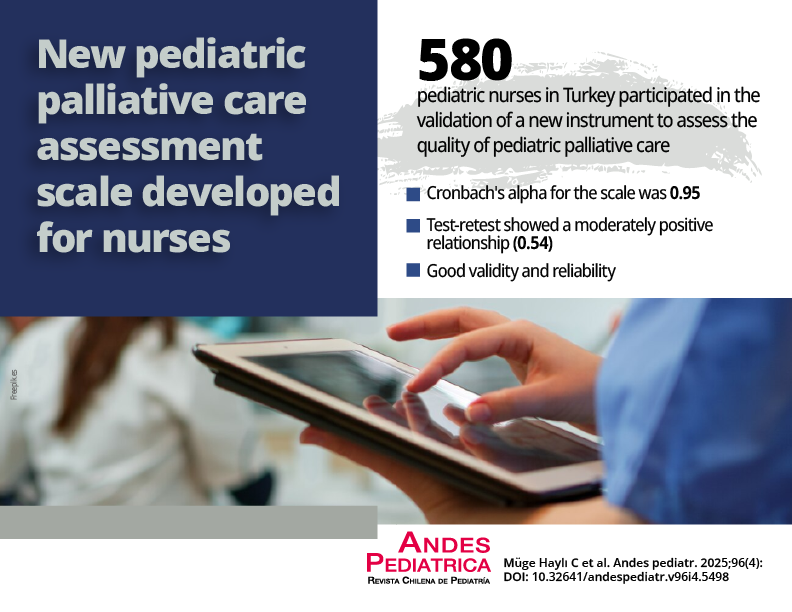Abstract
Objectives: to develop a new scale to evaluate pediatric palliative care: the Pediatric Palliative Care Quality Assessment Scale (PPCQAS).
Subjects and Method: 580 pediatric nurses constituted the sample of the study. They were asked to answer the sociodemographic questionnaire for nurses and a list of questions about the new pediatric palliative care scale, created by the expert opinion of the research team. Exploratory and confirmatory factor analysis was applied to evaluate the construct validity of the Palliative Care Attitude Scale. Pearson correlation coefficients were calculated to understand the relationships between the scale factors as well as the Cronbach and Omega alpha coefficients to observe its reliability based on internal consistency. In addition, test-retest analysis was performed to determine the scale’s stability and whether it could measure consistently over time. The PPCQAS and the Neonatal Palliative Care Attitude Scale (NiPCAS) were administered in a single session for criterion validity.
Results: The scale showed a Cronbach Alpha coefficient of 0.95 and an Omega Alpha coefficient of 0.96. The correlation coefficient used as a test-retest reliability method showed a moderately positive relationship between the two applications (0.54). There were moderate positive correlations between the scores of PPCQAS and NiPCAS for organization (r = 0.63; p < 0.01), sources (r = 0.54; p < 0.01), and clinical (r = 0.42; p < 0.01) dimensions.
Conclusion: These results showed that the pediatric palliative care scale has a unique structure and its validity-reliability is high. It has been determined that the pediatric palliative care scale is an adequate measurement tool.

This work is licensed under a Creative Commons Attribution 4.0 International License.
Copyright (c) 2025 Revista Chilena de Pediatría






